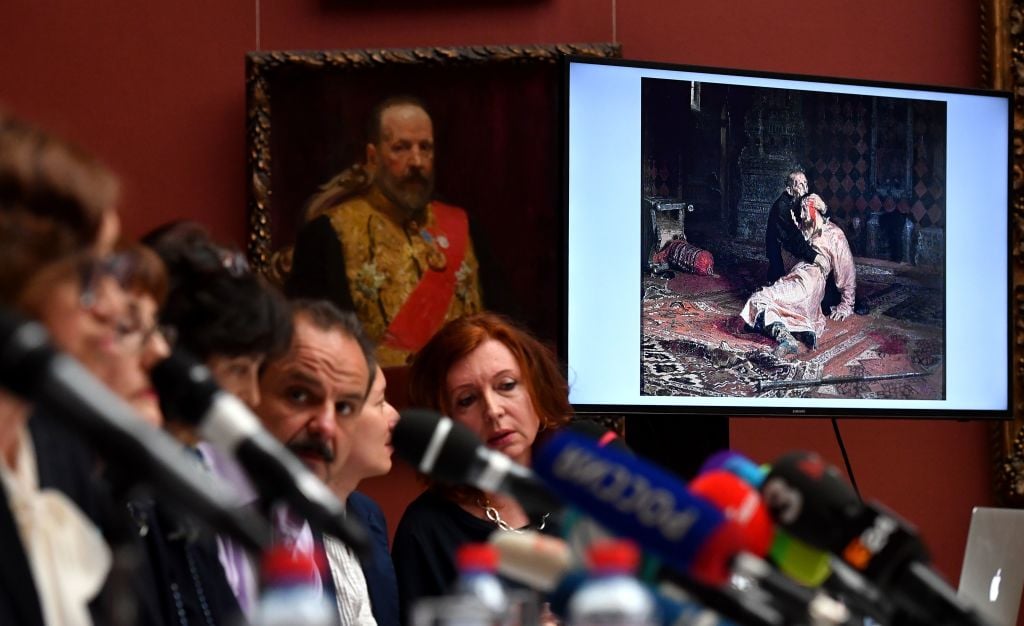
The man who attacked one of Russia’s most famous paintings with a metal pole has admitted in court that he was motivated by nationalist ideology, not drunkenness.
On Tuesday, 37-year-old Igor Podporin was charged with the destruction or damage to objects of historical and cultural value in a hearing at Moscow’s Zamoskvoretsky District Court. Podporin admitted to striking Ilya Repin’s 1885 painting Ivan the Terrible and His Son Ivan, which depicts the 16th-century ruler holding his dying son, at Moscow’s State Tretyakov Gallery.
Podporin initially claimed he carried out the attack because he felt “overwhelmed” after drinking vodka at the museum cafe. But in a court appearance on Tuesday, the man reversed himself: He denied drinking vodka and said that he vandalized the painting because he objected to how it depicted the Russia tsar, according to Reuters.
The artwork, which was slashed in three places and suffered damage to the frame, was described by museum curators as Russia’s Mona Lisa. According to historical accounts, Ivan the Terrible killed his son in 1581 by hitting him over the head with a staff amid a heated argument. Today, the incident is disputed by some historians and Russian nationalists, who believe the West has exaggerated the ruler’s conduct to negatively portray the country. Last year, President Vladimir Putin reportedly expressed doubt over the tsar’s guilt.
“The painting is a lie,” Podporin said in court, according to Russian news agencies. “He [Tsar Ivan the Terrible] is ranked among the community of saints.”
Ivan Melnikov, a human rights officer who visited Podporin in custody, told Reuters that Podporin was concerned about how the painting would influence foreigners’ views of Russia. “When I got to the Tretyakov I couldn’t stop myself,” he reportedly told the officer. “Foreigners go there and look at it. What will they think about our Russian tsar? About us? It’s a provocation against the Russian people so that people view us badly.”
The incident has inflamed concerns among Russia’s progressive left over attempts by religious figures and politicians to revise Russia’s history in order to stoke patriotism. The damage to Repin’s painting is the latest in a series of culturally focused attacks by nationalists and religious fundamentalists who appear unable or unwilling to distinguish between history and artistic depictions of historical events. Last year, police arrested the leader of a group of Christian Orthodox militants, who threatened to burn down a cinema showing Matilda, a film that includes sex scenes between Tsar Nicholas II and his mistress, a ballerina.